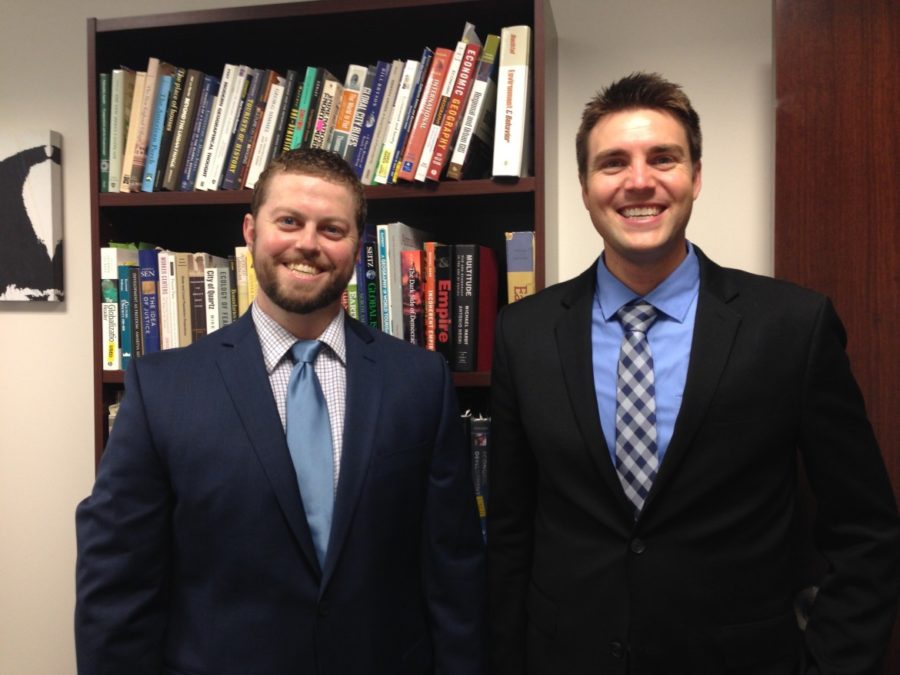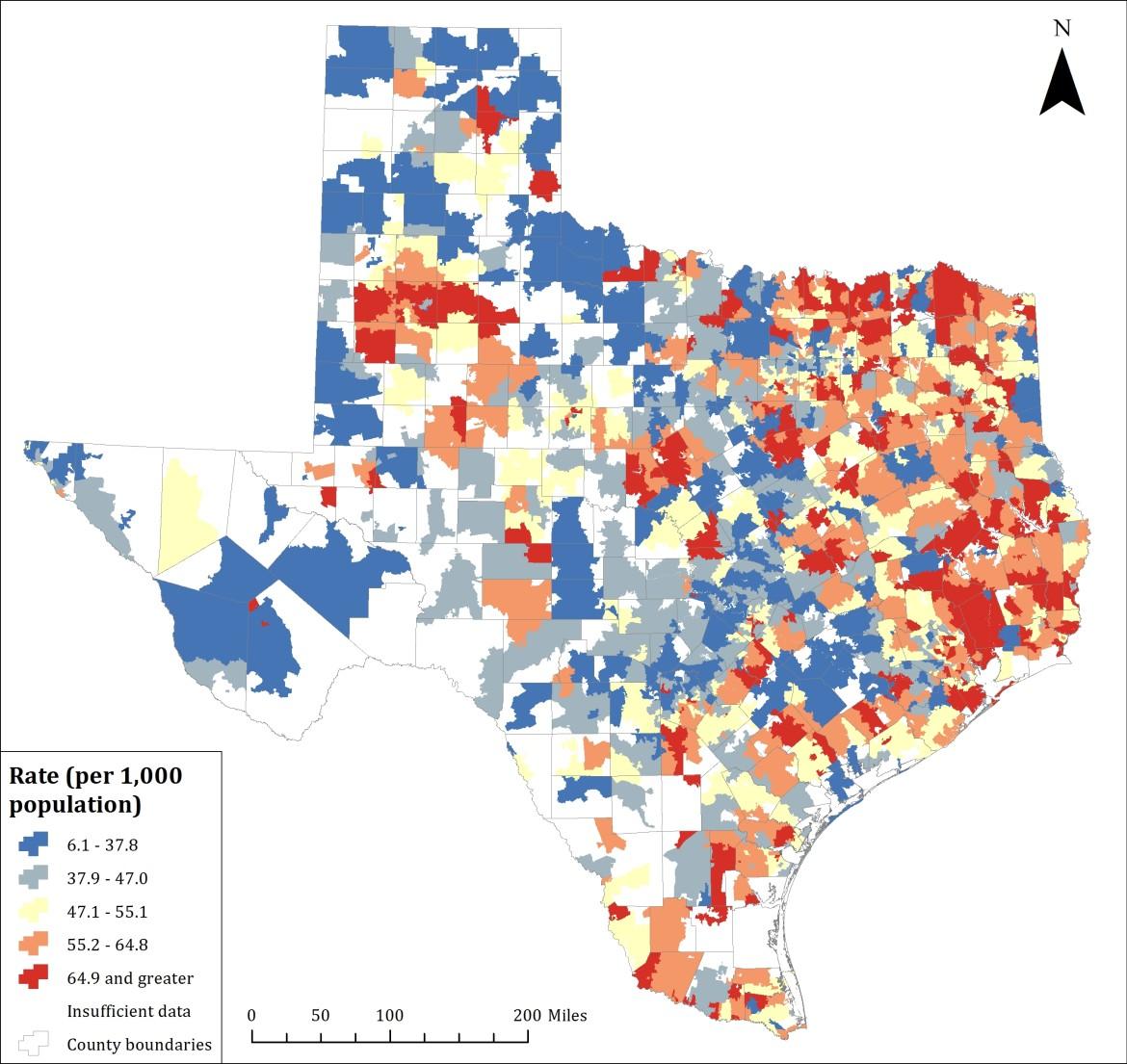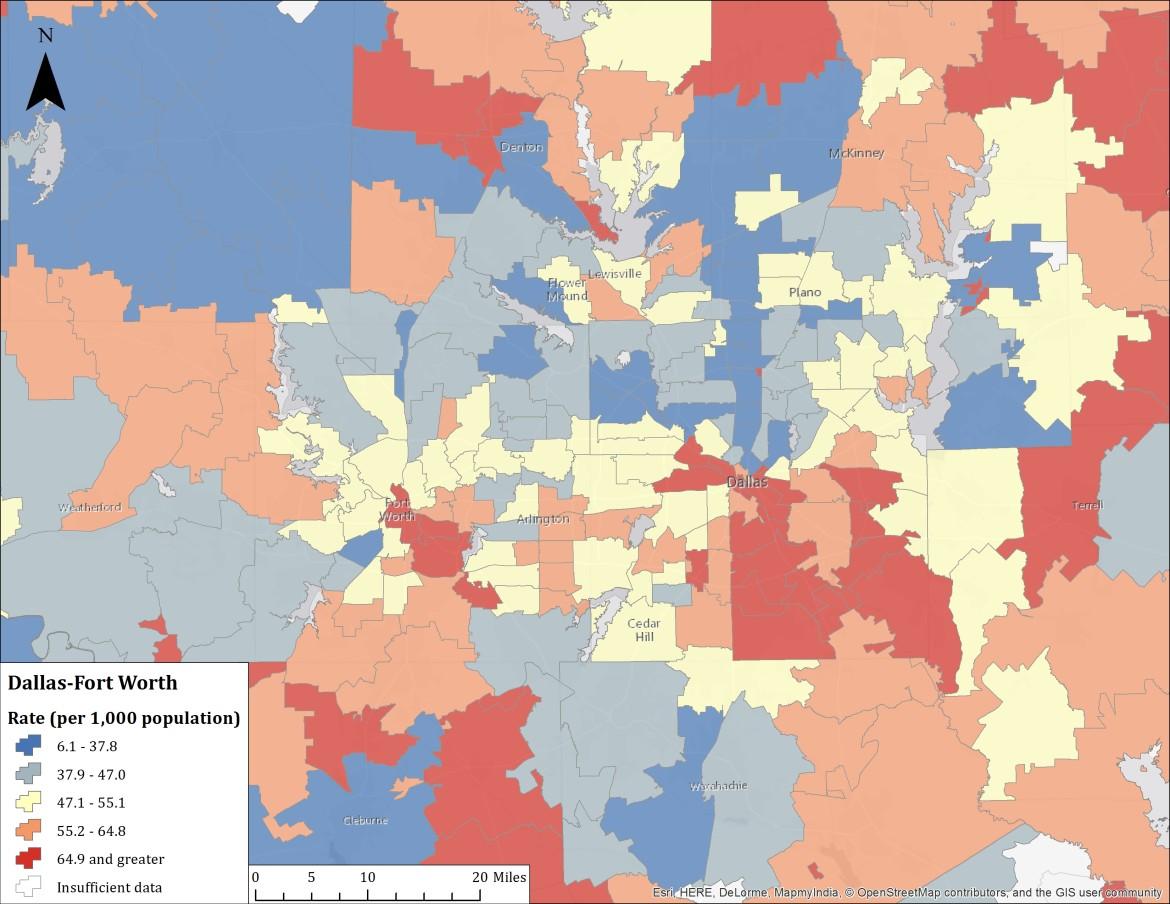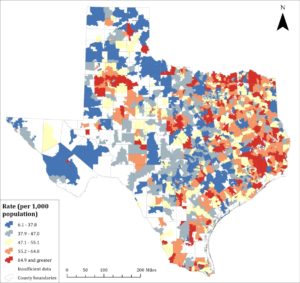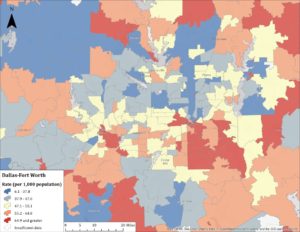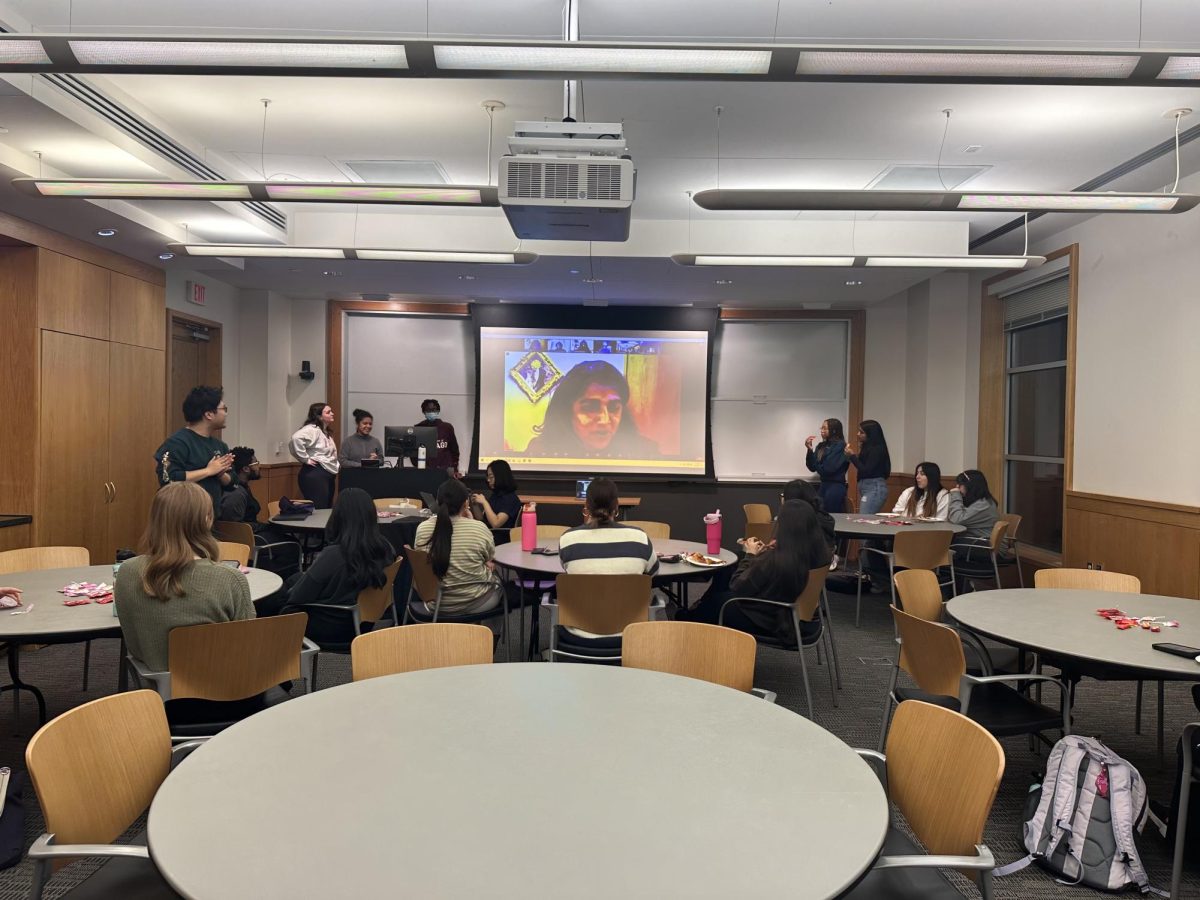Two TCU professors have discovered that where people live can affect their risks of heart disease just as much as their biological makeup and personal decisions.
Sean Crotty and Kyle Walker, both assistant professors of geography, started mapping heart disease by ZIP code throughout Texas in 2013.
Heart disease and stroke are the No. 1 and No. 4 adult killers in Texas, according to the Texas Department of State Health Services.
Crotty said most of their findings matched previous research that showed income and education are the best indicators of health outcomes.
However, Crotty said they found multiple exceptions.
“There’s really wealthy places, there’s really well-educated places [that] also have tremendously high cardiovascular health problems,” Crotty said.
Those exceptions include parts of the Dallas-Fort Worth area, McKinney, Allen, and almost all of Denton, Crotty said.
Walker said they are hoping to do further research to verify their data and to encourage individualized policies and outreaches for different ZIP codes.
Many people assume that certain types of communities have more cases of heart disease, “and we wanted to dispel that a little bit,” Walker said.
Health care and productivity loss from heart disease and stroke cost the U.S. about $320 billion in 2011, according to the Million Hearts website. The site is managed by the Centers for Disease Control and Prevention (CDC).
Crotty said the state of Texas may need to focus prevention efforts on different areas to lower the burden on taxpayers.
Walker said their next step is to determine why some neighborhoods do not follow the heart disease trends. While Crotty said this is a side project for him and Walker, the two are working to receive a grant to do the follow-up.
Pam Frable, an associate professor in the Harris College of Nursing & Health Sciences, discusses possible care solutions from a public health perspective.



